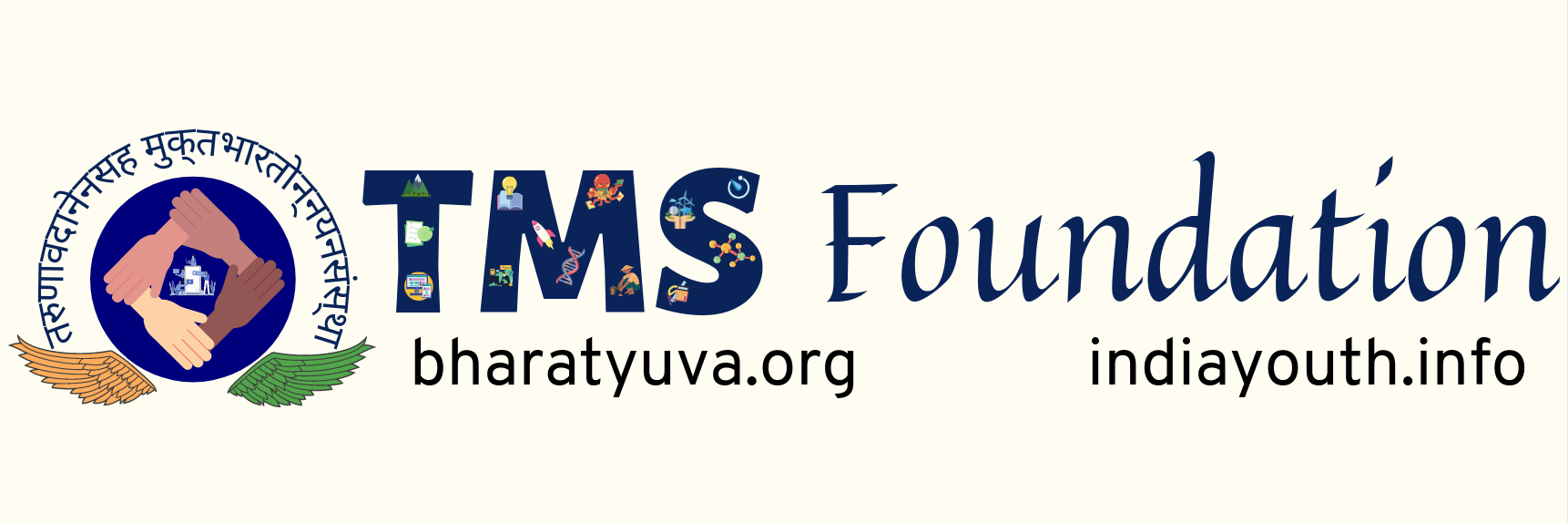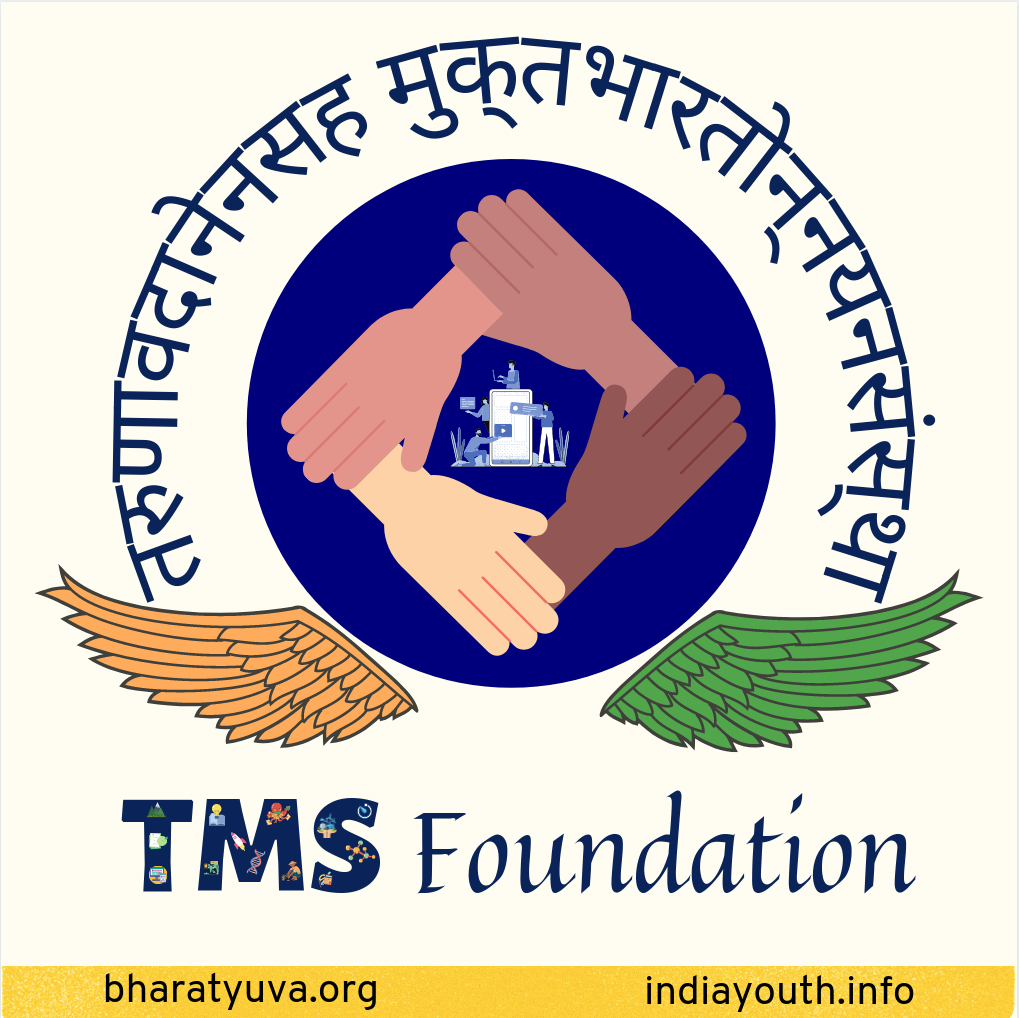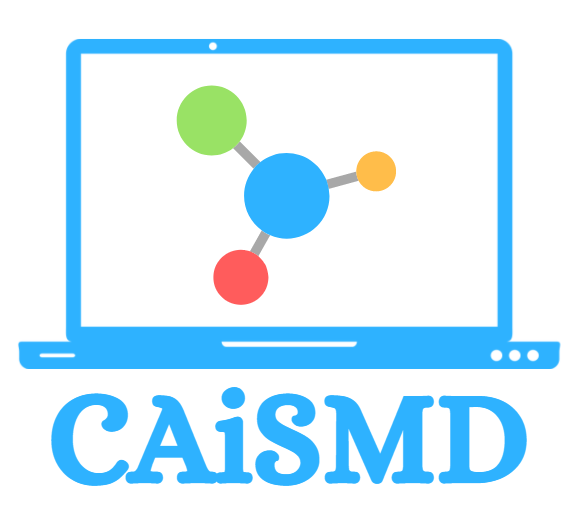
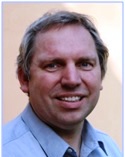
Ludger A. Wessjohann
Professor
Professor Wessjohann studied chemistry in Hamburg (Germany), Southampton (UK), and Oslo (Norway, Prof. Skattebøl). He earned his doctorate in 1990 with Prof. de Meijerein Hamburg. After a short period as lecturer in Brazil, he became a postdoctoral Feodor-Lynen fellow of the Alexander von Humboldt Foundation with Prof. Paul Wender at Stanford University (USA), working on the total synthesis of Taxol®. After an Assistant Professorship in Munich (LMU, 1992-1998), he was appointed to the Chair of Bioorganic Chemistry at the Vrije Universiteit Amsterdam (The Netherlands), working on organometallic chemistry and biocatalysis. Since 2001, he is director of the Department of Bioorganic Chemistry at the Leibniz Institute of Plant Biochemistry (IPB) in Halle (Germany), and in parallel holds the chair of natural product chemistry of the Martin Luther-University Halle-Wittenberg. From 2010-2017 he served as the Managing Director of the IPB (www.ipb-halle.de). Prof. Wessjohann focuses on the discovery, synthesis and application of natural products and bioactive derivatives thereof. He has over 400 publications, 30 patent applications, and is co-founder of six companies. He is a member of many boards and commissions, including recently the “mision de sabios' ' of the Colombian government. He received numerous scholarships, prizes and honors, e.g. Microsoft IT Founders Award, and is a foreign member of the Brazilian Academy of Science. Most recent chemoinformatics publication: "Evaluation of plant sources for antiinfective lead compound discovery by correlating phylogenetic, spatial, and bioactivity data "Proc. Nat. Acad. Sci. (PNAS), 2020; 117, 12444-12451. Director Dept. Bioorganic Chemistry & Full Professor of Chemistry Leibniz Institute of Plant Biochemistry (IPB)

Marnix Medema
Assistant Professor
Marnix Medema is an Assistant Professor of Bioinformatics at Wageningen University, The Netherlands. He obtained a Biology B.Sc. (Radboud University Nijmegen, 2006) and a Biomolecular Sciences M.Sc. (University of Groningen, 2008). In 2013, he completed his Ph.D. with Eriko Takano and Rainer Breitling in Groningen; during this period, he was also a visiting fellow with Michael Fischbach at the University of California, San Francisco. Following a postdoc at the Max Planck Institute for Marine Microbiology in Bremen, Germany, he joined Wageningen University in 2015. There, his group develops computational methodologies to unravel natural product biosynthesis using omics data, and applies these methods to the study of molecular interactions in microbiomes. From 2020, his group is supported by an ERC Starting Grant.
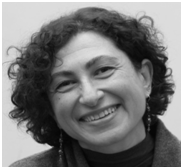
Özlem Taştan Bishop
Professor
Özlem is a Full Professor in structural bioinformatics at Rhodes University. She received her B.Sc. degree in Physics from Boğaziçi University, Istanbul, Turkey. Then she moved to the Department of Molecular Biology and Genetics at the same University for her M.Sc. degree. She obtained her Ph.D. from Max-Planck Institute for Molecular Genetics and Free University, Berlin, Germany in 2003. While doing her Ph.D., Özlem became interested in structural biology, and during her postdoctoral positions (Texas University, USA; University of Western Cape and University of Pretoria, South Africa) she gained experience in structural bioinformatics as well as structural biology. In 2009, Özlem took up an academic position at Rhodes University, South Africa. She established the Research Unit in Bioinformatics (RUBi) in 2013. She has graduated up to 13 Ph.D. and over 30 M.Sc. students since she joined Rhodes University. Özlem’s broad research interest is structural bioinformatics and its applications to drug design and development. Her recent interest is in the allosteric mechanisms of proteins and understanding the effects of non-synonymous single nucleotide variations on protein structure and function, in order: to decode the underlying causes of many inherited diseases; to uncover drug resistance mechanisms; and to investigate drug sensitivity issues in certain populations for precision medicine purposes. She has published over 75 research articles.
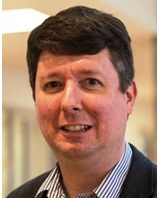
Tilmann Weber
Professor
Tilmann Weber is a Professor for Natural Products Genome Mining and Associate Scientific Director of the “Natural Products Genome Mining Group” at the Novo Nordisk Foundation Center for Biosustainability of the Technical University of Denmark. His main research interest is focused on deciphering the molecular pathways and engineering the biosynthesis of natural products by combining genetic, biochemical and bioinformatics methods. He is a pioneer in developing software for the automated genome mining (CLUSEAN, antiSMASH, antiSMASH-DB) and analysis of secondary metabolite biosynthetic pathways. His group was able to firstly elucidate the biosynthetic pathways of the elfamycin family of antibiotics and is deeply involved in developing CRISPR-based metabolic engineering tools for actinomycetes. Tilmann Weber is a member of the Editorial Board of Scientific Reports, Metabolic Engineering, and Associate Editor for Synthetic and Systems Biotechnology.
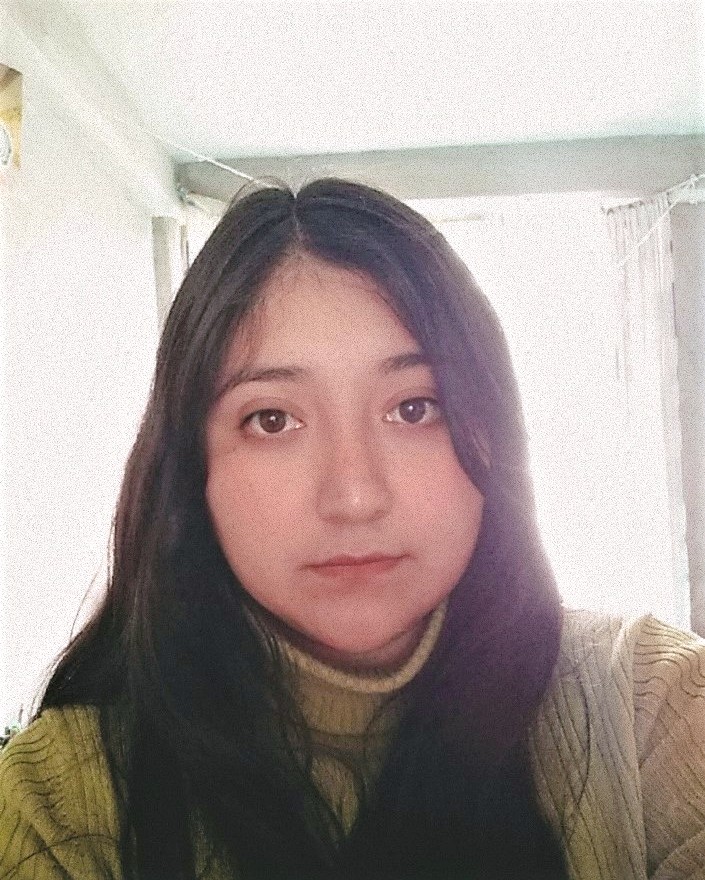
Ana L. Chávez-Hernández
Ph.D. Student
Ana Luisa Chávez-Hernández is a Ph.D. student in Chemical Science under the supervision of Dr. José Luis Medina Franco leader of DIFACQUIM Research Group, Department of Pharmacy of School of Chemistry at Universidad Nacional Autónoma de México. She has a Master of Chemical Science and a B.Sc. in Food Engineering. Currently, his research focuses on development of libraries from natural Products that can serve as building-blocks for design de novo and get the most out of the natural products that are already reported in databases.
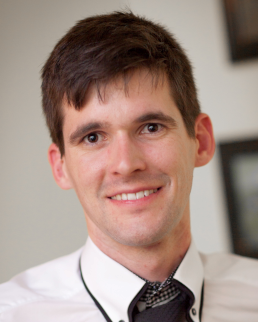
Johannes Kirchmair
Assistant Professor
Johannes Kirchmair is an Assistant Professor in cheminformatics at the Department of Pharmaceutical Chemistry of the University of Vienna and head of the Computational Drug Discovery and Design Group (COMP3D). He also is a group leader at the Center for Bioinformatics (ZBH) of the University of Hamburg. After earning his Ph.D. from the University of Innsbruck (2007), Johannes started his career as an application scientist at Inte:Ligand GmbH (Vienna) and as a university assistant at his alma mater. In 2010 he joined BASF SE (Ludwigshafen) as a postdoctoral research fellow. Thereafter he worked as a research associate at the University of Cambridge (2010-2013) and ETH Zurich (2013-2014). Johannes held a Junior Professorship in applied bioinformatics at the University of Hamburg (2014 to 2018) and an Associate Professorship in bioinformatics at the University of Bergen (2018 to 2019). He has been a visiting professor or lecturer at the National Institute of Warangal (2016), the University of Cagliari (2017) and the University of Vienna (2018). His main research interests include the development and application of computational methods for the prediction of the biological activities, metabolic fate and toxicity of small molecules (including natural products) in the context of drug discovery.
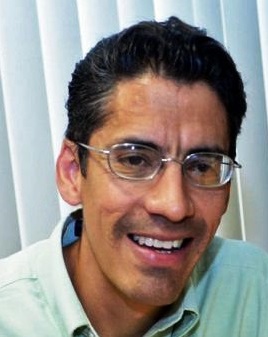
José L. Medina-Franco
Professor
Dr. Medina-Franco holds a B.Sc. in Chemistry (1998, National Autonomous University of Mexico (UNAM), a M.Sc. and Ph.D. degree (2005, both from the UNAM). In 2005, Dr. Medina Franco joined the University of Arizona as a postdoctoral fellow under the supervision of Prof. Gerald Maggiora and he was named Assistant Member at the Torrey Pines Institute for Molecular Studies in Florida in August 2007. In 2013, he conducted research at the Mayo Clinic. In 2014 he joined UNAM and now is Full Time Research Professor. He leads the DIFACQUIM research group at UNAM. The research focus is on chemoinformatics and computer-aided drug design with applications on epigenetic targets and natural products. He is a member of the National Researcher System, National Council of Science and Technology in Mexico with the highest level, III. In 2016, he was appointed as Research Collaborator of the Mayo Clinic and in 2017 he was named Fellow of the Royal Society of Chemistry (UK) and was Visiting Professor of the University of Montreal at Quebec in 2019. José has published 225 peer-reviewed papers, 23 books chapters and issued one international patent. He has edited the books Epi-Informatics and Food Informatics. He serves as guest editor of the Journal of Chemoinformatics, Frontiers in Chemistry and Biomolecules, and is member of the Scientific Advisory Board of the company Epigenavir, LLC (USA). Since 2007 he has been PI in several research grants funded by government institutions and pharmaceutical companies. Dr. Medina Franco has supervised the research of 8 postdoctoral fellows, 5 Ph.D. students, 5 Masters, and 18 Undergraduate students. He teaches the course Chemoinformatics at UNAM.

Kiran K. Telukunta
Ph.D & Workshop helper
In 2018, Kiran completed his doctoral research in Pharmaceutical Bioinformatics at the University of Freiburg (Germany), while managing several Scientific IT infrastructure for Bioinformatic and Cheminformatics scientific projects, under Prof. Dr. Stefan Günther. Since then, he has worked on several projects, including as a Backend Developer and Software Engineer at Flowers-Software GmbH and Scientific Cloud Coordinator at VIB in Gent (Belgium). He has previously taught a course on ”Drug Design”in the Master's Program in Pharmaceutical Biology, University of Applied Sciences, Zittau/Görlitz (Germany). He is Information System Administrator at ISES, a voluntary organisation in Freiburg (Germany). He is the one of the directors of the TMS Foundation, which voluntarily prepared the submission platform for this online workshop. During the workshop, he plans to present some general guidelines and underlying principles of gene cluster analysis with applications using Galaxy.

Maria Sorokina
Postdoc
Dr. Maria Sorokina is a Chem- and Bioinformatician in the Steinbeck group at The Friedrich-Schiller University in Jena, Germany. Her main research interests are natural products cheminformatics, challenges in storing complex biological data, deciphering enzyme functions and FAIR research data management. Dr. Sorokina studied at the University Paris-Saclay, where she obtained first her bachelor’s degree in molecular and Cellular Biology and then her master’s in bioinformatics and Biostatistics. She did her Ph.D. in bioinformatics at the Genoscope, the French National Sequencing Centre on new metabolic network representation for the discovery of metabolic pathways. After a short stay in Cologne, Germany, working on enzyme promiscuity in yeasts, she joined as a cheminformatician and data manager the collaborative research center ChemBioSys and the Steinbeck group at the Institute for Inorganic and Analytical Chemistry at the Friedrich-Schiller University in Jena.

Miquel Duran-Frigola
Ph.D Researcher
Miquel’s research interests lay at the intersection between drug discovery and large-scale biological data analysis. During his PhD studies and early career, Miquel developed state-of-the-art in silico methods, producing over 30 scientific publications in a broad range of topics, from theoretical chemistry to phenotypic screening. Along this process, he has worked at IRB Barcelona, the Massachusetts Institute of Technology (MIT), Tel Aviv University, IS Global-CISM (Mozambique) and CIDRZ (Zambia). Recently, Miquel has founded the Ersilia Open Source Initiative. With Ersilia, Miquel aims to apply his expertise to the context of open science and global health, accelerating the discovery of treatments for neglected clinical needs. Miquel is the lead scientist behind the development of the Chemical Checker, a computational drug discovery tool based on the systematic integration of diverse bioactivity data.

Paul Zierep
Postdoc
Dr. Paul Zierep completed his bachelor's degree in chemistry as part of the binational French-German "Regio Chimica'' program at the Universities of Mulhouse and Freiburg. He continued his studies in the master program Biochemistry and Biophysics. He just finished his Ph.D. in the bioinformatics group of Prof. Stefan Günther at the University of Freiburg. The main focus of his doctoral studies was the prediction of gene cluster metabolites based on computational approaches. The findings of the Ph.D. were compiled into a web server called SeMPI. SeMPI v1 focused on the combination of PKS prediction approaches with a database screening of the metabolites in the StreptomeDB v2. The second version was extended to NRPS products and included a large range of publicly available natural product databases. At the end of his Ph.D. he visited the group of Prof. Bjorn Peters at the La Jolla Institute for Immunology in California. There he applied his knowledge of cheminformatics to implement the first general approach for the prediction of non-peptidic epitopes. He is currently conducting a short term Post-Doc position at Prof. Stefan Günther’s group, where he is further investigating the immunogenic potential of small molecules.

Romuald Tematio Fouedjou
Ph.D Researcher
Romuald Tematio Fouedjou is currently a Visiting Researcher at the AgroEcoHealth Platform of the IITA (Benin) after his work at the Department of Chemistry (Research Unit of Environmental and Applied Chemistry, University of Dschang, Cameroon), where he received the Bachelor's, Master's and Ph.D. degrees in chemistry, specializing in organic chemistry/natural products chemistry in 2017. His research interests include bioactive secondary metabolites from medicinal plants and chemical transformations. He is also involved in various projects dealing with the in silico investigation of natural products from plants and pesticides in the environment.

Samuel A. Egieyeh
Ph.D - Pharmacist
Dr. Samuel Ayodele Egieyeh is a seasoned and highly experienced pharmacist (qualified in 1997) with Bachelors and Masters degrees in Pharmacy, and a Ph.D. in Bioinformatics. He also has a post-graduate diploma in clinical research and drug development from the University of Basel, Basel Switzerland. He is currently a senior lecturer at the discipline of Pharmacology and Clinical Pharmacy, School of Pharmacy, University of the Western Cape, Cape Town South Africa. He leads the Computational Pharmacology and Cheminformatics Group (CPCG). His research focuses on computational drug discovery and design; data science (including cheminformatics, bioinformatics, machine learning and biostatistics techniques) for predictive drug development and precision medicine for infectious and non-communicable diseases. His presentation will show the use of data science in drug discovery and development, therapeutics, and precision medicine. The presentation will also introduce the “University of the Western Cape’s Computational Pharmacology and Chemoinformatic Platform” that is used to analyse hit compounds from high-throughput assays (HTS) available in public bioactivity databases. The platform provides data analytics and data mining tools for researchers in drug discovery and design to analyse and mine useful data from their in vitro experiments in order to make rational and viable drug discovery and design decisions.
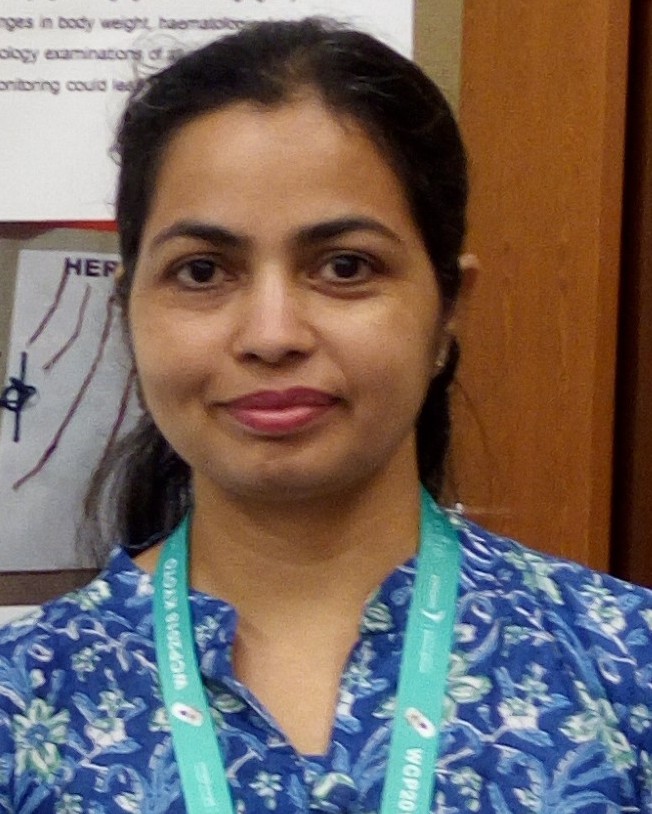
Vaishali M. Patil
Associate Professor
Dr. Vaishali Manikrao Patil is an Associate Professor of Pharmaceutical Chemistry at KIET Group of Institutions, Ghaziabad. She obtained her undergraduate degree in pharmacy (2000) from North Maharashtra Technical University, Jalgaon and postgraduate in pharmaceutical chemistry (2007) from Dr. A. P. J. Abdul Kalam Technical University, Lucknow. Dr. Vaishali received her doctorate in Pharmaceutical Sciences from Birla Institute of Technology, Mesra in 2014. Dr. Vaishali has diversified experience of 15 years in academics, research and pharmaceutical industry. She is experienced in medicinal chemistry, computer aided drug design (CADD), QSAR and application of CADD tools for drug discovery and development. She is supervising three Ph.D. scholars and has supervised more than 20 M.Pharm. students. Her lab has received funds from various funding agencies like SERB-DST, BIRAB-DBT, and AKTU. Dr. Vaishali has made over 65 scholarly contributions, including nearly 56 peer-reviewed research papers (citations = 321; h-index = 10; i10-index = 11; Aug 2020). She has authored 03 books published including one by an international publisher. She has contributed 13 chapters in books published by Elsevier, Springer and Nova Science Publishers. She has presented her research work at various national and international platforms organized in the United States, Japan and Hungary. She is also serving as Editorial Board Member of scopus-indexed, peer-reviewed journal “Anti-Infective Agents” and “Coronaviruses”.

Vanderlan da Silva Bolzani
Professor
Vanderlan da Silva Bolzani is a Full Professor at São Paulo State University (UNESP). Fellow of the Royal Society of Chemistry (UK), member of the Brazilian Academy of Science (ABC) and São Paulo Academy of Science (ACIESP), is also Science Productivity CNPq Fellow level 1A, and has received several awards; the most recently is Distinguished Woman in Science Chemistry and Chemical Engineering, conceived by ACS & IUPAC and Simão Mathias Medal and Elsevier-Capes in 2013. With Ph.D. in Organic Chemistry, under guidance of Professor Otto Richard Gottlieb, at University of São Paulo, in 1990 she was awarded with a fellowship from DAAD for a short training at University of Hannover. After a post-doctorate at Virginia Polytechnic Institute (VPISU-USA) under guidance of Professor David Kingston, she joined the São Paulo State University (UNESP), and since 2003, is member of the Biota-FAPESP Program Coordination. Currently is Director of the UNESP Technology Transfer Office (UNESP-AUIN). Her field of interest is plant science, and has been involved in the isolation, bioactivity and function of secondary metabolites and peptides from plants. Also she has studied biosynthesis of piperidine alkaloids, and recently has been involved in metabolomics of medicinal plants. She has had strong involvement in human resource training, with 0ver 50 Master and Ph.D. students and several Post-doctoral supervisions. She has been invited to give lectures and seminars Worldwide. Has published more than 203 articles (Index h=26, 2522 citations) 5 book chapters and 7 patents. Also has strong work collaboration with National Pharmaceutical and Cosmetic Industries looking for new drugs from plant species. Dr. Bolzani was President of the Brazilian Chemical Society from 2008-2010, and is currently Counselor. She serves as member of Editorial Boards of several Scientific Journals as Journal Natural Products, Natural Products Reports, Phytochemistry Letters and Journal of Ethnopharmacology. Since 2011 is a Visiting Professor at the Enzymologie Moléculaire et Fonctionnelle UR4-UPMC, Paris, and in 2012 she became a member of the L'Oreal Scientific Advisory Board. In October 2013 was elected for the World Academy of Science for the Advancement of Science in Developing Countries (TWAS).

Victor C. Osamor
Professor
Victor C. Osamor is a Full Professor of Computer Science, former Head of Department, Computer and Information Sciences and Coordinator/ Director, Covenant University Center for Information Technology (CU CIT). Prof. Osamor is also the Applied Research Coordinator for World bank-6 million dollar funded Covenant Applied Information and Communication - African Center of Excellence (CApIC-ACE) research grant project with experience and previous involvement in NIH, NSF, H3Africa and H3Abionet research projects. He has experience in postgraduate supervision with graduated and current M.Sc. and Ph.D. students under his training. Prof. Osamor is an Adjunct Professor and External Examiner to other Universities and a Grant Reviewer for the Executive Government Agency of National Science Centre (Narodowe Centrum Nauki -NCN), Poland. He researches in Bioinformatics, Artificial Intelligence, Data analytics with other interest in Software techniques, Cyber security, Computer graphics and animation with certification in Artificial Intelligence, Predictive Analytics in IBM SPSS Modeller, Microsoft Technical Associate (MTA) in Database, Oracle Database and SQL programming. Prof. Osamor is a Marie Curie Fellow and belongs to Marie Curie Alumni Association (MCAA), having experience in European Commission/EU Co-funded projects with European Research Center for Informatics and Mathematics (ERCIM). Prof. Osamor is a book author, co-editor of a textbook, reviewer and has several publications in reputable journals to his credit especially in Bioinformatics. His Ph.D is in Computer Science and Bioinformatics and a Post-Doctorial fellowship is at University of Warsaw, Poland.

Yannick Djoumbou Feunang
Ph.D - Data Scientist
Yannick is a Data Scientist – Cheminformatician at Chemistry Data Science Research Group Corteva Agriscience, Indianapolis, Indiana. Dr. Yannick Djoumbou Feunang earned his Ph.D. in Microbiology and Biotechnology at the University of Alberta - Canada, in 2017, where his research focused on developing Cheminformatics tools to enhance Metabolomics. Some of his main contributions include software tools (e.g. ClassyFire, BioTransformer, and CFM-ID 3.0), with applications of ontology and linked data, as well as machine-learning, and knowledge-based artificial intelligence to biology and chemistry. Additionally, he has contributed to the development of databases such as DrugBank and HMDB. Since 2018, Dr. Djoumbou Feunang has worked as a Research Investigator for the Chemistry Data Science research group at Corteva Agriscience in Indianapolis, Indiana. His responsibilities include among others: (1) the development of machine learning models to support lead generation and optimization projects, and; (2) the enhancement of Corteva’s Cheminformatics scientific computing platform. He also currently leads a project aiming at building a cutting-edge, adapted in silico metabolism platform at Corteva Agriscience.
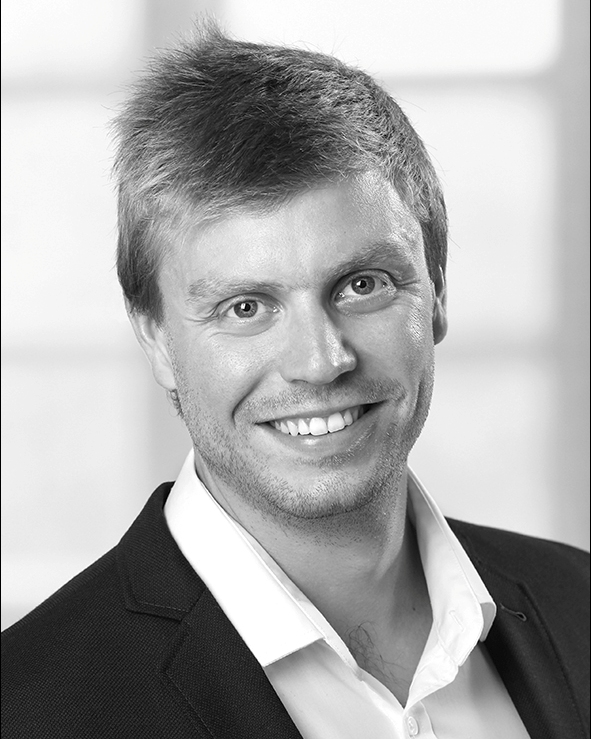
Conrad Stork
Ph.D Student
Conrad Stork is a Ph.D. student in the Computational Drug Discovery and Design Group (COMP3D) group of Johannes Kirchmair at the Center for Bioinformatics (ZBH) at University of Hamburg. He completed a Master of Science in theoretical Chemistry at the University of Hamburg in the group of Prof. Carmen Herrmann where he investigated spin dynamics of surfaces using a first principles approach. He then changed research areas from theoretical Chemistry to cheminformatics and web development with a focus on understanding and predicting Frequent Hitters in biochemical assays. Conrad is also the lead developer of the New E-Resource for Drug Discovery (NERDD), a web server which hosts key cheminformatics tools developed for public use.
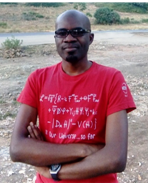
Daniel M. Shaddrack
Ph.D & Head of the Department of Chemistry
Daniel holds a Ph.D. in Computational Molecular Biophysics from NM-AIST, Tanzania and ICTP, Trieste, Italy. He is the Head of the Department of Chemistry, St John’s University of Tanzania. Since 2018, Daniel has acted the role as a Director and co-organizer of the Biophysics /Biophysical Chemistry school/workshop in Tanzania/Africa. He is a member of various societies including; Tanzania Chemical Society (TCS) and African Physical Society (AfPS). His areas of research focus on understanding the role of solvents in drug design, i.e. protein-ligand interaction, conformation of small molecules, protein conformations and drug delivery systems.
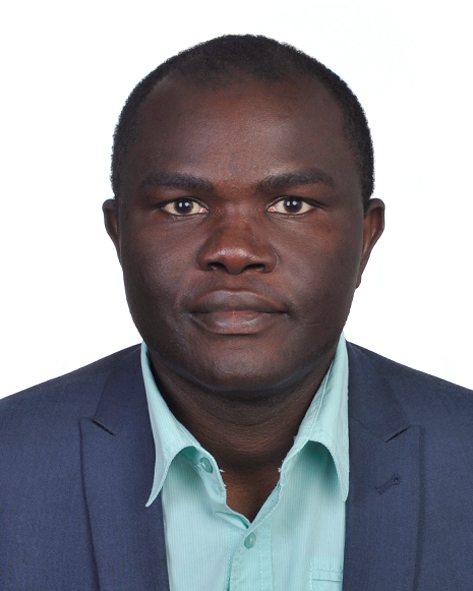
Fidele Ntie-Kang
Workshop Organizer
Fidele Ntie-Kang is one of the organizers of the online workshop "Computational Applications in Secondary Metabolite Discovery (CAiSMD)". He currently heads the Molecular Simulations Laboratory, Chemistry Department, University of Buea (Cameroon). He studied Chemistry at the University of Douala (Cameroon) from 1999 to 2005, leading to Bachelor's and Master's degrees. His Ph.D. was based on molecular modeling of anti-tubercular drug target to design novel inhibitors, followed by an Habilitation in Pharmaceutical Chemistry from Martin-Luther University Halle-Wittenberg, Halle (Saale) (Germany), under Prof. Wolfgang Sippl. He is concurrently a Guest Professor or Lecturer at the Technical University, Dresden (Germany), an Adjunct Professor at the Nelson-Mandela African Institution of Science and Technology, Arusha (Tanzania) and has previously taught a course on ”Drug Design'' in the Masters Program in Pharmaceutical Biology, University of Applied Sciences, Zittau/Görlitz (Germany). His current focus is the discovery of bioactive natural products from African flora by the use of virtual screening followed by in vitro assays. A major contribution of his research team has been the development of the African natural products database. He has authored or co-authored more than 80 publications and has served as Associate Editor in several journals, as Guest Editor in special issues in the journals Molecules and Frontiers in Pharmacology. He holds several awards, including the Georg Forster Fellowship from the Alexander von Humboldt Foundation (Germany) and is a member of several academic societies, including the American Chemical Society and the Cameroon Academy of Young Scientists. He is the editor of the book series "Chemoinformatics of Natural Products'' published by Degruyter.
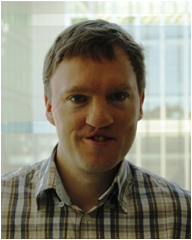
Justin J. J. van der Hooft
Assistant Professor
Justin van der Hooft is an Assistant Professor of Bioinformatics at Wageningen University, The Netherlands. He obtained a B.Sc. (2004) and M.Sc. (2007) in Molecular Sciences (Wageningen University). In 2012, he obtained his Ph.D. at the Biochemistry and Bioscience groups in Wageningen. He then moved to Glasgow, UK, for postdoctoral positions with Alan Crozier and Michael Barrett, subsequently. During his time in Glasgow, he developed mass spectrometry-based workflows to enhance metabolite annotation and also adopted molecular networking as a network-based annotation strategy. In particular, Justin set up a collaboration with Simon Rogers to develop MS2LDA for unsupervised substructure discovery in metabolomics data – based on topic modelling algorithms invented for text-mining approaches. In 2017, he took up a shared postdoctoral position between Marnix Medema and Pieter Dorrestein to explore the combination of genome and metabolome mining to accelerate natural product discovery. In January 2020, he started his own group in Wageningen that will develop computational metabolomics methodologies to decompose complex metabolite mixtures into their (sub)structures inspired by approaches in natural language processing and genomics. Justin will apply these workflows to study plant and microbiome-associated metabolites and the food metabolome.

Maria Sorokina
Postdoc
Dr. Maria Sorokina is a Chem- and Bioinformatician in the Steinbeck group at The Friedrich-Schiller University in Jena, Germany. Her main research interests are natural products cheminformatics, challenges in storing complex biological data, deciphering enzyme functions and FAIR research data management. Dr. Sorokina studied at the University Paris-Saclay, where she obtained first her bachelor’s degree in molecular and Cellular Biology and then her master’s in bioinformatics and Biostatistics. She did her Ph.D. in bioinformatics at the Genoscope, the French National Sequencing Centre on new metabolic network representation for the discovery of metabolic pathways. After a short stay in Cologne, Germany, working on enzyme promiscuity in yeasts, she joined as a cheminformatician and data manager the collaborative research center ChemBioSys and the Steinbeck group at the Institute for Inorganic and Analytical Chemistry at the Friedrich-Schiller University in Jena.
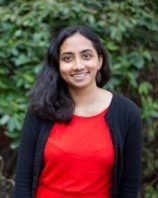
Neann Mathai
Ph.D. Student
Neann Mathai is a Ph.D. student in Cheminformatics under the supervision of Assoc. Prof. Johannes Kirchmair at the Computational Biology Unit and the Department of Chemistry at the University of Bergen (Norway). She has a Master of Science in Computer Science (focused on computational glycobiology and vaccine development under Assoc. Prof Michelle Kuttel) and a B.Sc. in Computer Science and Chemistry, both from the University of Cape Town, South Africa. She also spent an extended period of time in the United States where she worked on the statistical analysis of public health, epidemiological, and program management data and on the development of health informatics tools for large multinational organizations. Neann’s main research focuses are on the development and validation of target predictions methods and the development of methods to curate small molecule libraries for screens.

Thommas M. Musyoka
Postdoc
Dr. Thommas Mutemi Musyoka has a Ph.D. in bioinformatics from Rhodes University, South Africa. He is involved in several computational studies for early stage identification of potential hits against infectious agents as well as deciphering their underlying mechanisms of drug resistance. He is also involved in the maintenance and upgrading of the South African Natural Compound Database (SANCDB). Currently, he is working as a postdoctoral research fellow in the Research Unit of Bioinformatics (RUBi), Rhodes University where he also mentors several postgraduate students working on different computational studies.

Yannick Djoumbou Feunang
Ph.D - Data Scientist
Yannick is a Data Scientist – Cheminformatician at Chemistry Data Science Research Group Corteva Agriscience, Indianapolis, Indiana. Dr. Yannick Djoumbou Feunang earned his Ph.D. in Microbiology and Biotechnology at the University of Alberta - Canada, in 2017, where his research focused on developing Cheminformatics tools to enhance Metabolomics. Some of his main contributions include software tools (e.g. ClassyFire, BioTransformer, and CFM-ID 3.0), with applications of ontology and linked data, as well as machine-learning, and knowledge-based artificial intelligence to biology and chemistry. Additionally, he has contributed to the development of databases such as DrugBank and HMDB. Since 2018, Dr. Djoumbou Feunang has worked as a Research Investigator for the Chemistry Data Science research group at Corteva Agriscience in Indianapolis, Indiana. His responsibilities include among others: (1) the development of machine learning models to support lead generation and optimization projects, and; (2) the enhancement of Corteva’s Cheminformatics scientific computing platform. He also currently leads a project aiming at building a cutting-edge, adapted in silico metabolism platform at Corteva Agriscience.

Marnix Medema
Assistant Professor
Marnix Medema is an Assistant Professor of Bioinformatics at Wageningen University, The Netherlands. He obtained a Biology B.Sc. (Radboud University Nijmegen, 2006) and a Biomolecular Sciences M.Sc. (University of Groningen, 2008). In 2013, he completed his Ph.D. with Eriko Takano and Rainer Breitling in Groningen; during this period, he was also a visiting fellow with Michael Fischbach at the University of California, San Francisco. Following a postdoc at the Max Planck Institute for Marine Microbiology in Bremen, Germany, he joined Wageningen University in 2015. There, his group develops computational methodologies to unravel natural product biosynthesis using omics data, and applies these methods to the study of molecular interactions in microbiomes. From 2020, his group is supported by an ERC Starting Grant.

Paul Zierep
Postdoc
Dr. Paul Zierep completed his bachelor's degree in chemistry as part of the binational French-German "Regio Chimica'' program at the Universities of Mulhouse and Freiburg. He continued his studies in the master program Biochemistry and Biophysics. He just finished his Ph.D. in the bioinformatics group of Prof. Stefan Günther at the University of Freiburg. The main focus of his doctoral studies was the prediction of gene cluster metabolites based on computational approaches. The findings of the Ph.D. were compiled into a web server called SeMPI. SeMPI v1 focused on the combination of PKS prediction approaches with a database screening of the metabolites in the StreptomeDB v2. The second version was extended to NRPS products and included a large range of publicly available natural product databases. At the end of his Ph.D. he visited the group of Prof. Bjorn Peters at the La Jolla Institute for Immunology in California. There he applied his knowledge of cheminformatics to implement the first general approach for the prediction of non-peptidic epitopes. He is currently conducting a short term Post-Doc position at Prof. Stefan Günther’s group, where he is further investigating the immunogenic potential of small molecules.

Tilmann Weber
Professor
Tilmann Weber is a Professor for Natural Products Genome Mining and Associate Scientific Director of the “Natural Products Genome Mining Group” at the Novo Nordisk Foundation Center for Biosustainability of the Technical University of Denmark. His main research interest is focused on deciphering the molecular pathways and engineering the biosynthesis of natural products by combining genetic, biochemical and bioinformatics methods. He is a pioneer in developing software for the automated genome mining (CLUSEAN, antiSMASH, antiSMASH-DB) and analysis of secondary metabolite biosynthetic pathways. His group was able to firstly elucidate the biosynthetic pathways of the elfamycin family of antibiotics and is deeply involved in developing CRISPR-based metabolic engineering tools for actinomycetes. Tilmann Weber is a member of the Editorial Board of Scientific Reports, Metabolic Engineering, and Associate Editor for Synthetic and Systems Biotechnology.

Fidele Ntie-Kang
Workshop Organizer
Fidele Ntie-Kang is one of the organizers of the online workshop "Computational Applications in Secondary Metabolite Discovery (CAiSMD)". He currently heads the Molecular Simulations Laboratory, Chemistry Department, University of Buea (Cameroon). He studied Chemistry at the University of Douala (Cameroon) from 1999 to 2005, leading to Bachelor's and Master's degrees. His Ph.D. was based on molecular modeling of anti-tubercular drug target to design novel inhibitors, followed by an Habilitation in Pharmaceutical Chemistry from Martin-Luther University Halle-Wittenberg, Halle (Saale) (Germany), under Prof. Wolfgang Sippl. He is concurrently a Guest Professor or Lecturer at the Technical University, Dresden (Germany), an Adjunct Professor at the Nelson-Mandela African Institution of Science and Technology, Arusha (Tanzania) and has previously taught a course on ”Drug Design'' in the Masters Program in Pharmaceutical Biology, University of Applied Sciences, Zittau/Görlitz (Germany). His current focus is the discovery of bioactive natural products from African flora by the use of virtual screening followed by in vitro assays. A major contribution of his research team has been the development of the African natural products database. He has authored or co-authored more than 80 publications and has served as Associate Editor in several journals, as Guest Editor in special issues in the journals Molecules and Frontiers in Pharmacology. He holds several awards, including the Georg Forster Fellowship from the Alexander von Humboldt Foundation (Germany) and is a member of several academic societies, including the American Chemical Society and the Cameroon Academy of Young Scientists. He is the editor of the book series "Chemoinformatics of Natural Products'' published by Degruyter.
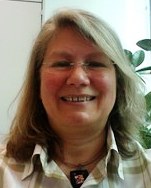
Jutta Ludwig-Müller
Professor & Workshop organizer
Prof. Jutta Ludwig-Müller is one of the organizers of the online workshop "Computational Applications in Secondary Metabolite Discovery (CAiSMD)". From 1999, she has been a Professor of Plant Physiology at the Technical University Dresden (Germany). After studying Biology at Frankfurt (Main) leading to a Diploma thesis on the topic "Auxin biosynthesis in Brassicaceae" (1981-1986), she completed her PhD dissertation in 1990 at the Botanical Institute of the Johann Wolfgang Goethe Universität (JWGU) in Frankfurt (Main) on the topic "Auxin biosynthesis and the role of auxins during the clubroot disease", with several visits to the laboratory of Dr. Ephraim Epstein, Volcani Center, Israel. After a research assistanship and postdoctoral stay in the USA, she completed her Habilitation in 1996. From 1995 to1999, she was an Assistant Professor at the Botanical Institute of the JWGU. During this period she made several visits to the laboratory of Dr. Jerry D. Cohen, United States Department of Agriculture, Beltsville, Maryland (USA). Her research focuses on mechanisms leading to plant-pathogen (clubroot disease) interactions or the interaction with beneficial microorganisms (fungal endophytes). He group is interested in the role of plant hormones and secondary plant products for development of pathogenic or symbiotic interactions of fungi with host plants. For better understanding of the events leading to pathogenesis, the team have begun to identify differentially expressed genes during host/pathogen interaction. She is also interested in the role of auxins and glucosinolates during plant development and therefore they study the biosynthesis, metabolism and regulation mechanisms controlling the endogenous concentrations of these compounds. In addition to glucosinolates, her team also investigates the bioactivity of other secondary plant metabolites such as flavonoids and phenylpropanoids. In 2019, she was awarded the Spiridion Brusina Medal of the Croatian Society of Natural Sciences. She is a member of several scientific organizations, including the American Society of Plant Biology (ASPB). the German Botanical Society (DBG), Deutscher Hochschulverband (DHV) and the International Plant Growth Substances Association. She is a member of the editorial board of several journals, including being the Editor-in-Chief of the journal Actualia, (published by the German Botanical Society) and Editor-in-Chief of the journal Journal of Plant Growth Regulation (Springer).

Marnix Medema
Assistant Professor
Marnix Medema is an Assistant Professor of Bioinformatics at Wageningen University, The Netherlands. He obtained a Biology B.Sc. (Radboud University Nijmegen, 2006) and a Biomolecular Sciences M.Sc. (University of Groningen, 2008). In 2013, he completed his Ph.D. with Eriko Takano and Rainer Breitling in Groningen; during this period, he was also a visiting fellow with Michael Fischbach at the University of California, San Francisco. Following a postdoc at the Max Planck Institute for Marine Microbiology in Bremen, Germany, he joined Wageningen University in 2015. There, his group develops computational methodologies to unravel natural product biosynthesis using omics data, and applies these methods to the study of molecular interactions in microbiomes. From 2020, his group is supported by an ERC Starting Grant.

Vanderlan da Silva Bolzani
Professor
Vanderlan da Silva Bolzani is a Full Professor at São Paulo State University (UNESP). Fellow of the Royal Society of Chemistry (UK), member of the Brazilian Academy of Science (ABC) and São Paulo Academy of Science (ACIESP), is also Science Productivity CNPq Fellow level 1A, and has received several awards; the most recently is Distinguished Woman in Science Chemistry and Chemical Engineering, conceived by ACS & IUPAC and Simão Mathias Medal and Elsevier-Capes in 2013. With Ph.D. in Organic Chemistry, under guidance of Professor Otto Richard Gottlieb, at University of São Paulo, in 1990 she was awarded with a fellowship from DAAD for a short training at University of Hannover. After a post-doctorate at Virginia Polytechnic Institute (VPISU-USA) under guidance of Professor David Kingston, she joined the São Paulo State University (UNESP), and since 2003, is member of the Biota-FAPESP Program Coordination. Currently is Director of the UNESP Technology Transfer Office (UNESP-AUIN). Her field of interest is plant science, and has been involved in the isolation, bioactivity and function of secondary metabolites and peptides from plants. Also she has studied biosynthesis of piperidine alkaloids, and recently has been involved in metabolomics of medicinal plants. She has had strong involvement in human resource training, with 0ver 50 Master and Ph.D. students and several Post-doctoral supervisions. She has been invited to give lectures and seminars Worldwide. Has published more than 203 articles (Index h=26, 2522 citations) 5 book chapters and 7 patents. Also has strong work collaboration with National Pharmaceutical and Cosmetic Industries looking for new drugs from plant species. Dr. Bolzani was President of the Brazilian Chemical Society from 2008-2010, and is currently Counselor. She serves as member of Editorial Boards of several Scientific Journals as Journal Natural Products, Natural Products Reports, Phytochemistry Letters and Journal of Ethnopharmacology. Since 2011 is a Visiting Professor at the Enzymologie Moléculaire et Fonctionnelle UR4-UPMC, Paris, and in 2012 she became a member of the L'Oreal Scientific Advisory Board. In October 2013 was elected for the World Academy of Science for the Advancement of Science in Developing Countries (TWAS).
